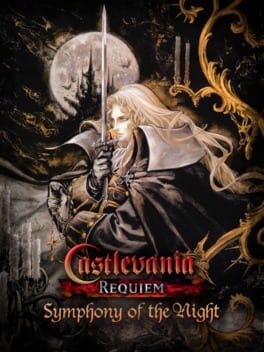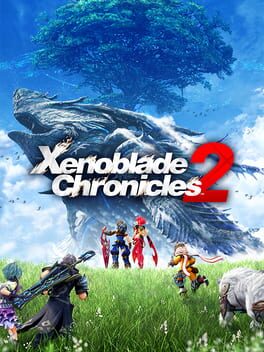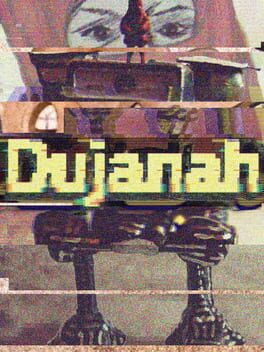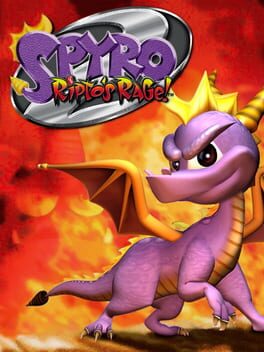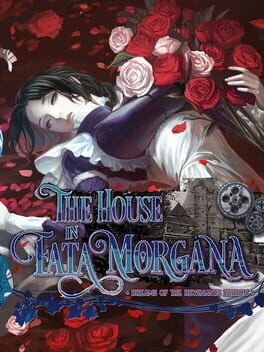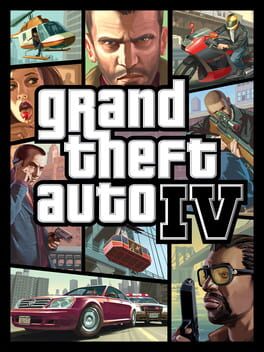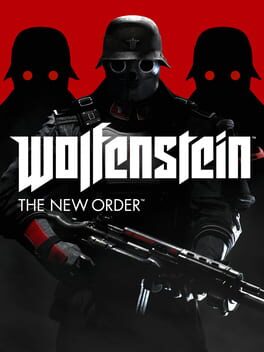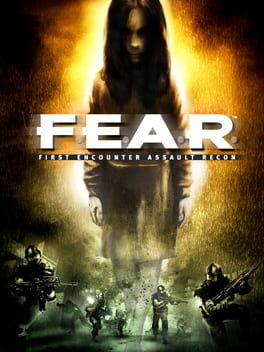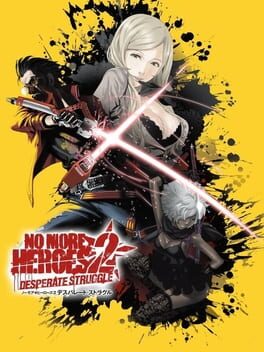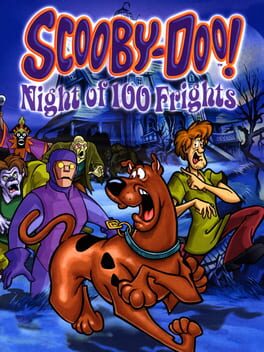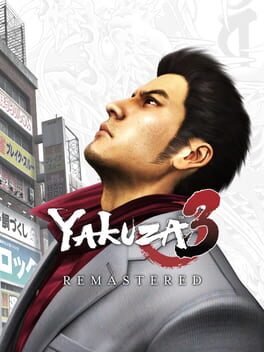MaisDiOitoMil
78 Reviews liked by MaisDiOitoMil
Final Fantasy XVI
2023
Final Fantasy XVI
2023
Google tells me I'm past halfway through Final Fantasy XVI and I keep finding weak excuses to not finish it. I just don't find this game fun.
Frustrating combat, weak story and lifeless semi-open worlds... all working against the beautiful score, truly next gen presentation, and the epic but infrequent Eikon battles.
I could probably push my way through if the combat was fun, however it is so dull to smash through. There is no challenge to it, just spongey enemies and repetition. The game often throws waves of enemies at you, yet rarely offers anything new. There is a mission about 10 hours in where you are working your way to a boss through these puzzle rooms, and you fight the same enemy dozens of times for about an hour. I was bored out of my mind.
I consider myself a mediocre gamer (Souls-likes terrify me) and haven't died once, not even in the optional side boss battles. That isn't what you want from a game like this.
Sounds like I hate it, so why the rating? The Eikon battles are incredible. The spectacle of them is unparalleled. Trim the game down by 10 hours so these battles become more frequent, and you've got a game I'd finish.
I also loved the performances, even if I didn't care for a lot of the characters or what was happening. There was a lot of heavy lifting done by the talented cast, and they deserve all the praise I think they'll receive this awards season.
Frustrating combat, weak story and lifeless semi-open worlds... all working against the beautiful score, truly next gen presentation, and the epic but infrequent Eikon battles.
I could probably push my way through if the combat was fun, however it is so dull to smash through. There is no challenge to it, just spongey enemies and repetition. The game often throws waves of enemies at you, yet rarely offers anything new. There is a mission about 10 hours in where you are working your way to a boss through these puzzle rooms, and you fight the same enemy dozens of times for about an hour. I was bored out of my mind.
I consider myself a mediocre gamer (Souls-likes terrify me) and haven't died once, not even in the optional side boss battles. That isn't what you want from a game like this.
Sounds like I hate it, so why the rating? The Eikon battles are incredible. The spectacle of them is unparalleled. Trim the game down by 10 hours so these battles become more frequent, and you've got a game I'd finish.
I also loved the performances, even if I didn't care for a lot of the characters or what was happening. There was a lot of heavy lifting done by the talented cast, and they deserve all the praise I think they'll receive this awards season.
Within the game's gorgeous open zones, windows of interaction with different manners of moving through the maps (using a stream of wind to get up a platform, using a fire skill to burn down vines, etc.) are often gatekept by a varied set of abilities acquired by leveling up certain attributes in favour of specific openings in the game's Affinity trees (which are unique for each Blade) --- the so called field skills are only but one of the many variables that rule how Blades you bond with will interact with traversal, combat and overall progression through the game. There is a notable contrast between the sprawling, natural and detailed zones of the setting and the slippery, awkward character movimentation through these same panoramas filled with markers and cluttering UI identifiers; an incongruity between the maximalist, megalomaniac numerical obsession of the matters in which players connect and interact with that virtual world, and the often terrain-based combat/navigation that constantly demands that you look around and look for gaps between the pixelated topography, to check if there's an unrelated enemy around who could aggro you and interrupt your chain of orbs, to topple a flying enemy and make it fall down after you make it to higher ground, to use rails, rocks or other common environment assets to cheese your way through battles by gaining distance from the enemy's aggroing and auto-attacking with a bitball or a cannon while their path is blocked by said asset, to make use of the game's many position-based Arts: these strategies are not exceptions, but constant thoughts and visualizations I had through the game's many, many encounters.
This friction between the 'artificial' and the 'pulsing', the 'constant' and the 'drifting', is what builds this game's main dialectics: in this made-up world of flamboyant designs destined to be made fun of or utilized for their visual and questionable appeal, of series of integers and technical rigidness bounding the player to a progression based on variables and array-based requirements, how do we achieve genuine connection between constructs that seem to attract inherent unseriousness and confusion? How do we break down the walls of 'artifices' between the player and the game? The answer could only be one: Rex, and his Salvager Code.
The panache and naivete of juvenile optimism, the shonen-esque confidence in all that exists and the resolve to make people smile. Within the bounds of its own artificiality and the signifiers used to construct its experience, Xenoblade Chronicles 2 somehow manages to weave a convincing force of sincerity through a world that is conducted by the forces of constants, arrays, dipping frames and uncertain dynamic resolution --- all of that which cannot be organically touched or interacted with, ends up crossing the walls of mechanicality unexplainably by the end of it all, finding expression and meaning in the most unexpected places. A boy and a girl make a promise to reach Paradise; the boy complies without knowing why, not even because of the fact she saved his life right beforehand --- for giving his life for a stranger is simply his spirit. A girl who fears her own power, shutting herself off for unspecified milennia; a boy who finds treasures in junk for a living, salvaging meaning and memories out of seamless clouds. In the friendship between Rex and Pneuma lies the game's final and most important dichotomy, the impossibility between eternity and remembrance, the way in which our selves are tied to our egos which are formed by the promises we make to each other, how one would rather die than be forgotten by the one they love and keep on going for infinity. Theirs is a relationship of light: uncertainness about oneself's purpose breed spontaneity and trust in that which shines the way forward. Shin had Metsu, Hana had Hikari; within the endless streams of lights we project when we break down the walls of artifices between us, we find identity and purpose.
In each of the game's varied landscapes, one sight tends to repeat itself: the view of Alrest's enormous World Tree, the promised spot that gives access to Paradise and God, peering at his creations above the sea of white. To find that these organic leaves sprouting from its head and that the wooden exterior of its large shell house a high-tech facility full of elevators and robot guards only intensifies the images that Alrest creates through gameplay: an ocean hiding before humanity's ruins in Morytha, the vistas of the clouds forming different shapes and patterns within the perspectives of each character, numerical catharsis and exploitation of the artifices as a means of visualizing the act of bonding and the struggle of moving forward by your own means. Connecting Arts and auto-attacks indefinitely, building up elemental spheres and breaking them with the collective power of strategized synchrony; the endless QTEs building up in the screen demanding timing and linking in this fascinating real-time turn-based system.
"I love this world because you're in it."
This friction between the 'artificial' and the 'pulsing', the 'constant' and the 'drifting', is what builds this game's main dialectics: in this made-up world of flamboyant designs destined to be made fun of or utilized for their visual and questionable appeal, of series of integers and technical rigidness bounding the player to a progression based on variables and array-based requirements, how do we achieve genuine connection between constructs that seem to attract inherent unseriousness and confusion? How do we break down the walls of 'artifices' between the player and the game? The answer could only be one: Rex, and his Salvager Code.
The panache and naivete of juvenile optimism, the shonen-esque confidence in all that exists and the resolve to make people smile. Within the bounds of its own artificiality and the signifiers used to construct its experience, Xenoblade Chronicles 2 somehow manages to weave a convincing force of sincerity through a world that is conducted by the forces of constants, arrays, dipping frames and uncertain dynamic resolution --- all of that which cannot be organically touched or interacted with, ends up crossing the walls of mechanicality unexplainably by the end of it all, finding expression and meaning in the most unexpected places. A boy and a girl make a promise to reach Paradise; the boy complies without knowing why, not even because of the fact she saved his life right beforehand --- for giving his life for a stranger is simply his spirit. A girl who fears her own power, shutting herself off for unspecified milennia; a boy who finds treasures in junk for a living, salvaging meaning and memories out of seamless clouds. In the friendship between Rex and Pneuma lies the game's final and most important dichotomy, the impossibility between eternity and remembrance, the way in which our selves are tied to our egos which are formed by the promises we make to each other, how one would rather die than be forgotten by the one they love and keep on going for infinity. Theirs is a relationship of light: uncertainness about oneself's purpose breed spontaneity and trust in that which shines the way forward. Shin had Metsu, Hana had Hikari; within the endless streams of lights we project when we break down the walls of artifices between us, we find identity and purpose.
In each of the game's varied landscapes, one sight tends to repeat itself: the view of Alrest's enormous World Tree, the promised spot that gives access to Paradise and God, peering at his creations above the sea of white. To find that these organic leaves sprouting from its head and that the wooden exterior of its large shell house a high-tech facility full of elevators and robot guards only intensifies the images that Alrest creates through gameplay: an ocean hiding before humanity's ruins in Morytha, the vistas of the clouds forming different shapes and patterns within the perspectives of each character, numerical catharsis and exploitation of the artifices as a means of visualizing the act of bonding and the struggle of moving forward by your own means. Connecting Arts and auto-attacks indefinitely, building up elemental spheres and breaking them with the collective power of strategized synchrony; the endless QTEs building up in the screen demanding timing and linking in this fascinating real-time turn-based system.
"I love this world because you're in it."
Dujanah
2017
Dujanah é uma visita ao cemitério; tanto que, o jogo começa e termina interagindo com um túmulo. É uma obra que está o tempo todo tentando desagradar, fazendo piadas com situações terríveis e colocando a diegese do jogo em xeque -- perceba que, 80% do texto se direciona ao jogador, por mais que ainda crie sentido com a jornada da protagonista.
Dujanah é um espantalho de si mesmo e experimenta diversos elementos de sua linguagem para contar uma história sobre morte; a morte de seu marido e filha, a morte daqueles que sofreram pela ocupação ocidental na região, e a morte de uma objetividade perversa que permeia as discussões sobre arte na cultura dos videogames.
Tudo está morto no jogo. Os NPCs são meras figuras de argila que representam seu passado vivido e contam suas histórias para Dujanah independente da noção metalinguística e da noção de que o player irá entender (ou não). Diversas telas e interações com o texto do jogo passaram em branco para mim -- simplesmente não precisamos entender tudo.
Várias e várias vezes eu me peguei pensando "O quão nonsense isso se apresenta? O quão absurdo, talvez pretensioso? E seu significado, qual seria?" e é muito ruim ter a sensação de que o jogo fala muito para dizer pouco; porém, essas sensações eram tão passageiras quanto as histórias daqueles que já foram. E de alguma forma, elas foram úteis para a manutenção da minha experiência, de que nada preciso entender, tudo preciso sentir. Um bom exemplo disso foi o minigame de metroidvania do jogo, no qual eu senti diversas coisas como catarse, angústia, nojo, ansiedade; e no fim, não consegui canalizar pensamentos o suficiente para tirar alguma coisa daquilo. Até que eu interagi com um NPC, uma aranha, o símbolo da luxúria no jogo, e ela me disse "e eu não sei 100% se essas escolhas interpretativas vão deixar o jogador mais informado de alguma forma", e bem, eu concordo completamente -- os temas islâmicos do jogo passaram em branco para mim, e mesmo assim, não senti que tive uma experiência incompleta.
Dujanah aproveita do "inútil" ao "desagradável" para juntar suas peças e formar essa grande colagem em forma de jogo -- os sons, os visuais, o texto, as interações -- tudo extremamente poluído e algumas vezes parecendo até um shitpost vazio ou creepypasta forçada, mas que de alguma forma, manteve meu interesse.
"É verdade que a audiência, fundamentalmente, busca se entreter, é sua natureza; portanto, ela irá encontrar entretenimento, mesmo que em lugares impróprios"
Dujanah é um espantalho de si mesmo e experimenta diversos elementos de sua linguagem para contar uma história sobre morte; a morte de seu marido e filha, a morte daqueles que sofreram pela ocupação ocidental na região, e a morte de uma objetividade perversa que permeia as discussões sobre arte na cultura dos videogames.
Tudo está morto no jogo. Os NPCs são meras figuras de argila que representam seu passado vivido e contam suas histórias para Dujanah independente da noção metalinguística e da noção de que o player irá entender (ou não). Diversas telas e interações com o texto do jogo passaram em branco para mim -- simplesmente não precisamos entender tudo.
Várias e várias vezes eu me peguei pensando "O quão nonsense isso se apresenta? O quão absurdo, talvez pretensioso? E seu significado, qual seria?" e é muito ruim ter a sensação de que o jogo fala muito para dizer pouco; porém, essas sensações eram tão passageiras quanto as histórias daqueles que já foram. E de alguma forma, elas foram úteis para a manutenção da minha experiência, de que nada preciso entender, tudo preciso sentir. Um bom exemplo disso foi o minigame de metroidvania do jogo, no qual eu senti diversas coisas como catarse, angústia, nojo, ansiedade; e no fim, não consegui canalizar pensamentos o suficiente para tirar alguma coisa daquilo. Até que eu interagi com um NPC, uma aranha, o símbolo da luxúria no jogo, e ela me disse "e eu não sei 100% se essas escolhas interpretativas vão deixar o jogador mais informado de alguma forma", e bem, eu concordo completamente -- os temas islâmicos do jogo passaram em branco para mim, e mesmo assim, não senti que tive uma experiência incompleta.
Dujanah aproveita do "inútil" ao "desagradável" para juntar suas peças e formar essa grande colagem em forma de jogo -- os sons, os visuais, o texto, as interações -- tudo extremamente poluído e algumas vezes parecendo até um shitpost vazio ou creepypasta forçada, mas que de alguma forma, manteve meu interesse.
"É verdade que a audiência, fundamentalmente, busca se entreter, é sua natureza; portanto, ela irá encontrar entretenimento, mesmo que em lugares impróprios"
A mostly fine sequel ruined by some of the most boring and annoying side missions I've ever seen in any 3d platformer. On the good side, the levels themselves both play and look good, so if you aren't going for a 100% its mostly a nice time, even if the game is a bit too easy and simple overall.
You also brutally murder your enemies and use their agonizing souls to power up magical gates.
You also brutally murder your enemies and use their agonizing souls to power up magical gates.
I went into this game thinking I could crack a few jokes at the expense of friends who enjoy visual novels. I come out the other side having been fundamentally changed as a person and reflecting on my own life and the experiences that got me where I am today. When this game was sitting at a 100 on metacritic, it should've stayed there, it is really that good.
Grand Theft Auto IV
2008
F.E.A.R.
2005
-> launches game
-> installs patches to play
-> "oh cool! For a game this old the AI sure is fairly smart (than most games nowadays) and the gunplay is good!"
-> make it to mid way point and game nearly gives up to throw anything new at you
-> "Horror sequence straight from a GMOD map
-> Encounter
-> "Horror Sequence again
The encounters were fun though, core combat is definitely ahead of its time. Too bad the horror got stale for me after a bit but I like in certain sections how it linked to the games encounters in darker areas. Cool
-> installs patches to play
-> "oh cool! For a game this old the AI sure is fairly smart (than most games nowadays) and the gunplay is good!"
-> make it to mid way point and game nearly gives up to throw anything new at you
-> "Horror sequence straight from a GMOD map
-> Encounter
-> "Horror Sequence again
The encounters were fun though, core combat is definitely ahead of its time. Too bad the horror got stale for me after a bit but I like in certain sections how it linked to the games encounters in darker areas. Cool
Every No More Heroes sequel focuses on one of its elements rather than its whole, each of them to mixed success. TSA its hidden depths, NMH3 its characters and structure, and NMH2 its gameplay and style. Unfortunately, while probably the most commonly beloved of the three, I think it fails utterly to live up to its predecessor.
NMH1 had pacing. You had to earn every bit of fun, working through jobs or grindy side missions to get to fight the next assassin, so when you did, it was special. 2 doesn't even let you take your time. The only things you can do between bouts of combat are side missions, which are just more fighting but without the payoff of a cool boss at the end or admittedly improved but now completely pointless (both mechanically and thematically) minigames. The open world is gone, and with it the anticipation and mystique of every boss battle. Now they're just levels in a videogame.
I'm not going to pretend NMH1 was some masterpiece of action game combat. It was good, repetitive but satisfying mashy fun, and that's all it tried to be. NMH2 mostly succeeds at replicating that, and brings some improvements (being able to switch between weapons on the fly is appreciated, and just having multiple theoretically viable playstyles rather than every sword being an upgrade to the previous is nice), but it ultimately ends up being worse because of things around the combat itself. NMH1, again, was well-paced. Each stage was a bit of an event on its own, and each one had its gimmick to break up the repetition of the fighting. NMH2 enemies get spongey as hell, the stages get way too long by the end and have basically no variation through them. Shinobu and Henry are now playable, but while this should be cool, Shinobu is really unwieldy and ends up fighting the most boring boss in the game and then the absolute worst one, while Henry is playable for just one mediocre boss fight with no stage and then never again. It's the NMH equivalent of a turret section, it happens and then it ends, and you're not really sure what the point was.
Every NMH1 boss is worth remembering. A couple failed mechanically, but none thematically: most were great challenges, and all highlighted Travis' character in their own way. No More Heroes 2 was actually meant to focus more on boss battles and their characters, to the point that they were designed first and foremost, but this actually has a negative impact on them. No longer are they cool foils to our protagonist that help develop him and the world, they're just goofy over the top characters in a goofy over the top world. That's not to say there's no good ones, I love a couple of them, but the quality of both gameplay and writing has dropped, and with it Travis loses his opportunities to shine as the compelling, unique character he is, and ends up just feeling like a generic quirky action game protagonist. Equal parts Dante and Deadpool, with a sprinkle of some stoic anime badass of your choice. He gets the girl at the end, for fuck's sake. How do you miss the point that bad?
The story aspires to greatness, but ends up unknowingly (Somehow? Suda51 still worked on this, though not as much. Did he just not care?) just treading in the first game's footsteps. Why, thank you, Desperate Struggle, revenge is bad. We definitely didn't do "Travis gets obsessed with some made-up goal and actively makes his life worse as a result as he carves a path of blood through Santa Destroy" already. At the same time, unlike NMH1 it tries way too hard to make Travis "badass" and "likeable", which means its message ends up feeling half-assed.
Since I clearly haven't spent enough time babbling about this game, here's my thoughts on all the bosses.
- Skelter Helter - Decent tutorial boss, nothing to say. A cool intro.
- Nathan Copeland - Janky fight, I hate the scene where Travis kills a couple of innocents without any regard for them, that's very unlike him. Ok otherwise, Nathan does have charisma.
- Charlie MacDonald - The mech would have been great as some form of climax or late-game setpiece, but NMH2 uses it way too early and then never shows up again until an off-hand mention in NMH3. As a character Charlie barely exists.
- Kimmy Howell - I like the idea of Travis actively and accidentally encouraging a whole new generation to become murderers to follow him. Unfortunately the game barely touches on this, good on NMH3 for actually addressing it just a tiny bit.
- Matt Helms - Cool vibes but kinda nothing in the end.
- Cloe Walsh - Stupid easy, also kinda nothing.
- Dr. Letz Shake - Gimmicky but a bit fun.
- Million Gunman - May be the least interesting boss in the whole series, his entire character is that he likes money and has a slightly cool accent. This is like Metal Gear (not Solid) 1 level of boss gimmicks, where they had a guy called "Shotmaker" whose superpower was shooting you.
- New Destroyman - Awful. They reused the moveset from the first game whole-sale and still fucked it up, the "Red" Destroyman fights you straight up, you beat him, and then begins a 20-minute game of very slowly whittling down the "Blue" one's HP as it shamelessly camps you out.
- Ryuji - Pretty good fight, I like it thematically too.
- Mimmy - Weird. Very bizarre thing to put in the game. They really thought they were onto something huh?
- Margaret Moonlight - I'm not gonna sugarcoat it I fucking love Margaret. Her design is awesome, her being a sniper works in the fight without making it a complete slog pretty well and her theme goes fucking crazy.
- Captain Vladimir - A pretty odd addition, but in a good way this time. His fight is a bit surreal and a bit sad, and I'm always into that.
- Alice Twilight - She's pretty cool. Probably the only boss in the game that feels Kill The Past in any way.
- Jasper Batt Jr. - I hate this guy so much. His first and third phases are just unremarkably lame, but phase 2 is so fucking unfair and all (probably?) to drive home the most boring, worthless "point" to any game's story. I don't know if he sucks on purpose or on accident but I despise him.
NMH1 had pacing. You had to earn every bit of fun, working through jobs or grindy side missions to get to fight the next assassin, so when you did, it was special. 2 doesn't even let you take your time. The only things you can do between bouts of combat are side missions, which are just more fighting but without the payoff of a cool boss at the end or admittedly improved but now completely pointless (both mechanically and thematically) minigames. The open world is gone, and with it the anticipation and mystique of every boss battle. Now they're just levels in a videogame.
I'm not going to pretend NMH1 was some masterpiece of action game combat. It was good, repetitive but satisfying mashy fun, and that's all it tried to be. NMH2 mostly succeeds at replicating that, and brings some improvements (being able to switch between weapons on the fly is appreciated, and just having multiple theoretically viable playstyles rather than every sword being an upgrade to the previous is nice), but it ultimately ends up being worse because of things around the combat itself. NMH1, again, was well-paced. Each stage was a bit of an event on its own, and each one had its gimmick to break up the repetition of the fighting. NMH2 enemies get spongey as hell, the stages get way too long by the end and have basically no variation through them. Shinobu and Henry are now playable, but while this should be cool, Shinobu is really unwieldy and ends up fighting the most boring boss in the game and then the absolute worst one, while Henry is playable for just one mediocre boss fight with no stage and then never again. It's the NMH equivalent of a turret section, it happens and then it ends, and you're not really sure what the point was.
Every NMH1 boss is worth remembering. A couple failed mechanically, but none thematically: most were great challenges, and all highlighted Travis' character in their own way. No More Heroes 2 was actually meant to focus more on boss battles and their characters, to the point that they were designed first and foremost, but this actually has a negative impact on them. No longer are they cool foils to our protagonist that help develop him and the world, they're just goofy over the top characters in a goofy over the top world. That's not to say there's no good ones, I love a couple of them, but the quality of both gameplay and writing has dropped, and with it Travis loses his opportunities to shine as the compelling, unique character he is, and ends up just feeling like a generic quirky action game protagonist. Equal parts Dante and Deadpool, with a sprinkle of some stoic anime badass of your choice. He gets the girl at the end, for fuck's sake. How do you miss the point that bad?
The story aspires to greatness, but ends up unknowingly (Somehow? Suda51 still worked on this, though not as much. Did he just not care?) just treading in the first game's footsteps. Why, thank you, Desperate Struggle, revenge is bad. We definitely didn't do "Travis gets obsessed with some made-up goal and actively makes his life worse as a result as he carves a path of blood through Santa Destroy" already. At the same time, unlike NMH1 it tries way too hard to make Travis "badass" and "likeable", which means its message ends up feeling half-assed.
Since I clearly haven't spent enough time babbling about this game, here's my thoughts on all the bosses.
- Skelter Helter - Decent tutorial boss, nothing to say. A cool intro.
- Nathan Copeland - Janky fight, I hate the scene where Travis kills a couple of innocents without any regard for them, that's very unlike him. Ok otherwise, Nathan does have charisma.
- Charlie MacDonald - The mech would have been great as some form of climax or late-game setpiece, but NMH2 uses it way too early and then never shows up again until an off-hand mention in NMH3. As a character Charlie barely exists.
- Kimmy Howell - I like the idea of Travis actively and accidentally encouraging a whole new generation to become murderers to follow him. Unfortunately the game barely touches on this, good on NMH3 for actually addressing it just a tiny bit.
- Matt Helms - Cool vibes but kinda nothing in the end.
- Cloe Walsh - Stupid easy, also kinda nothing.
- Dr. Letz Shake - Gimmicky but a bit fun.
- Million Gunman - May be the least interesting boss in the whole series, his entire character is that he likes money and has a slightly cool accent. This is like Metal Gear (not Solid) 1 level of boss gimmicks, where they had a guy called "Shotmaker" whose superpower was shooting you.
- New Destroyman - Awful. They reused the moveset from the first game whole-sale and still fucked it up, the "Red" Destroyman fights you straight up, you beat him, and then begins a 20-minute game of very slowly whittling down the "Blue" one's HP as it shamelessly camps you out.
- Ryuji - Pretty good fight, I like it thematically too.
- Mimmy - Weird. Very bizarre thing to put in the game. They really thought they were onto something huh?
- Margaret Moonlight - I'm not gonna sugarcoat it I fucking love Margaret. Her design is awesome, her being a sniper works in the fight without making it a complete slog pretty well and her theme goes fucking crazy.
- Captain Vladimir - A pretty odd addition, but in a good way this time. His fight is a bit surreal and a bit sad, and I'm always into that.
- Alice Twilight - She's pretty cool. Probably the only boss in the game that feels Kill The Past in any way.
- Jasper Batt Jr. - I hate this guy so much. His first and third phases are just unremarkably lame, but phase 2 is so fucking unfair and all (probably?) to drive home the most boring, worthless "point" to any game's story. I don't know if he sucks on purpose or on accident but I despise him.
Resident Evil 2
2019
I never played the original but this remake is really good. I wouldn't call it a masterpiece but it definitely does more things right than wrong. The creepy atmosphere is done so well, same with the enemies, especially Mr. X . However, the story and the enviroments can feel kind of stale sometimes. It has great replay value but I'll be honest, I don't feel like playing it again.
Game #56
Finally completed a lifelong goal of 100% my favorite childhood game. A perfect licensed title. Completely matches the feel of the series and features lots of content inspired by the history of the series. And to top it off, it's a really fun videogame. The Metroidvania style is pretty unique for licensed games of this era and the only of its kind in the Scooby-Doo series.
Finally completed a lifelong goal of 100% my favorite childhood game. A perfect licensed title. Completely matches the feel of the series and features lots of content inspired by the history of the series. And to top it off, it's a really fun videogame. The Metroidvania style is pretty unique for licensed games of this era and the only of its kind in the Scooby-Doo series.
Yakuza 3 Remastered
2018
what a bad remaster. they forgot to take into account that they changed the fps from 30 to 60 so now the enemies in combat now act twice as fast, if you wanna know why the enemies are always blocking it's because of this. and this game also has the worst boss fight in the entire series. there are some good things to say though and that yakuza 3 has a great story, and it also introduced a lot of features that are staples of the series like karaoke, it also adds content scrubbed from the original ps3 version and removes that shitty transphobic substory too

